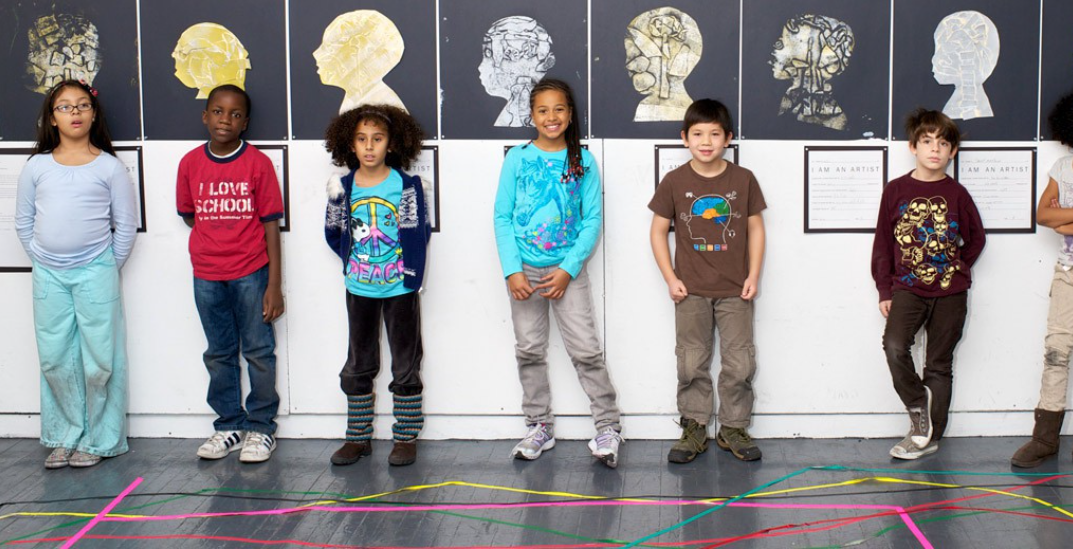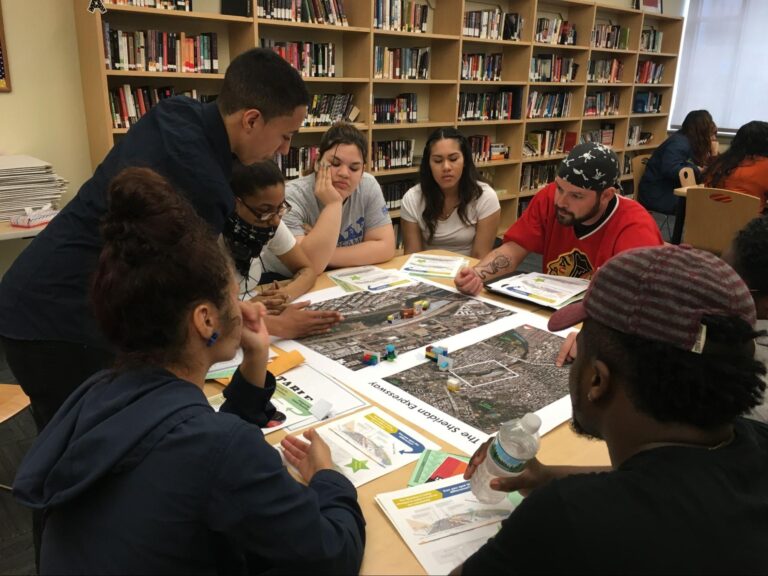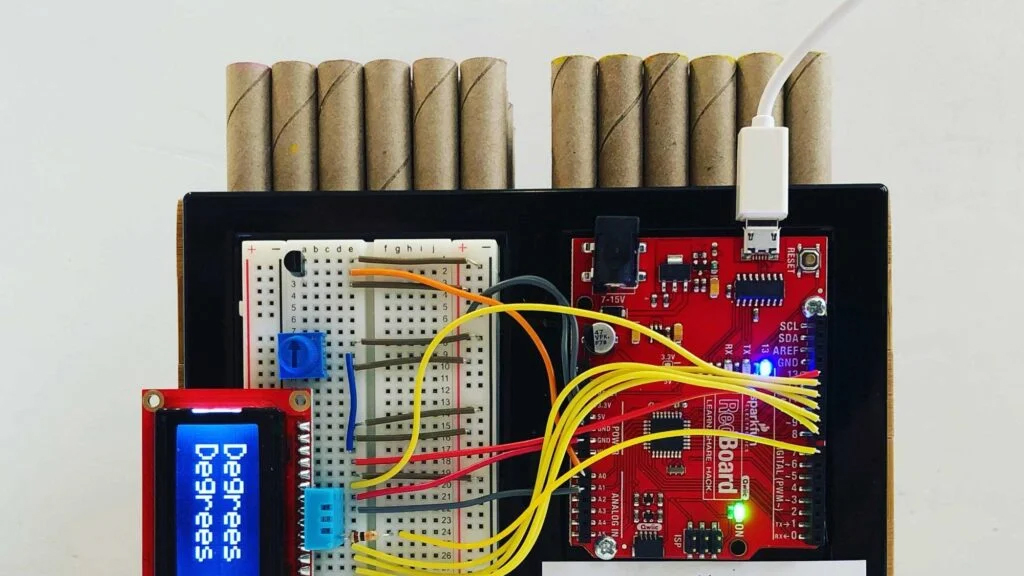
Pratt researchers can form collaborative partnerships through a number of different structures. Our Provost’s Centers and the IDC Research Accelerator Hub conduct impactful research in many disciplines, from nurturing new artists and designers, to responding to climate change, to catalyzing affordable housing development and stimulating job creation.
Each research group may have a space at the Research Yard, where collaborations and partnerships can grow and evolve. The IDC Research Accelerators turn early ideas into real world impact. We provide a supportive environment for research projects to grow, so that researchers can develop them into business start-ups, School Centers, Provost’s Centers, and more.
Provost’s Centers



The IDC Research Accelerator Hub
Supported by the IDC Foundation, the IDC Research Accelerators take early-stage research and support their growth and development, as they pursue further funding, product realization, or prototyping studies. Housed at the Research Yard, Accelerators can share ideas, access support and resources, and grow their research into business start-ups, School or Provost’s Centers, or, we can help them to imagine and realize a different path that matches their ambition.
AI in Filmmaking
Justice Whitaker, School of Art
AI in Filmmaking explores the uses of generative AI for creating video images. Designed with the goal of supporting generative AI software integration into Pratt curriculum, AI in Filmmaking aims to ultimately make a recommendation for how AI can be integrated into filmmaking practices at the independent and industry levels. This published report of research findings and recommendations will stand as a document for guiding filmmakers at Pratt and in the global community on sustainable AI integration into the craft and industry.
Collective Cool CIties Lab
Yuliya Dzyuban, School of Architecture
Collective Cool CIties Lab supports community-led urban heat solutions through neighborhood-level participatory microclimate assessments that center diverse lived experiences.
Joinery
Keena Suh, School of Design
Joinery explores resources to support design-build interdisciplinary collaborations that engage community-engaged projects— identifying, building upon, and expanding resources that are necessary for sustained partnerships to support curriculum and community building connected through hands-on making. Through multidisciplinary landscapes wherein tools, materials, processes, and perspectives are shared, not only can new languages and literacies emerge, but expand connections to unexpected resources and support mechanisms. This research embarks on navigating and mapping these possibilities as a shared resource.
Land Skills Workshop
Mariel Collard, School of Architecture
The Land Skills Workshop investigates how designers can relate to the natural world by building land-based skills and outdoor competence in a time of ecological and cultural transformation. Through a decolonial lens, it explores ancestral landscape practices, materials, tools, and technologies that allow us to orient ourselves in the Earth— to read, navigate, and make future landscapes.
Open-Ended Structures
Laura Salazar-Altobelli, School of Architecture
Open-Ended Structures investigates climate resilience through the adaptive reuse of urban infrastructures. Our work asks how architecture can operate within existing conditions by developing adaptive, open-ended structures that accommodate multiple forms of occupation over time. Rooted in a dialogue with the as-found, the lab explores the environmental impact of building, while prototyping strategies for transformation and reuse.
Current projects span climatic devices for housing in Paris, experimental methods of tracing building evolution in Syracuse, public infrastructures for climate resilience in Logroño and New York, and office-to-residential conversions in Manhattan. Together, these inquiries test how modest but precise architectural interventions can address pressing ecological and urban challenges.
Participatory Ecologies Lab
Swati Piparsania, School of Design
The Participatory Ecologies Lab (Parti-Eco) is an interdisciplinary design laboratory that addresses local environmental and socioeconomic challenges through participatory action research, civic engagement, and design interventions. We aim to create equitable, inclusive, and shared futures through design-led social innovation and sustainability practices. The Lab uses fieldwork programs, strategic partnerships, creative collaboration, and educational programming to engage the multi-generational public. By centering community participation, cooperation, and care, Parti-Eco develops creative responses to pressing ecological and social conditions.
Pattern Studio
Philip Ording, School of Liberal Arts & Sciences
Pattern Studio is grounded in research on mathematical creativity and the material, social, and emotional processes that shape it. Patterns play a central role in art and design while mathematics is increasingly recognized as the “science of patterns.” Pattern Studio examines how contexts in art and design can foster deeper, more sustained engagement with mathematics learning.
Science, Technology, and the Quantified Body
Whitney Laemmli, School of Liberal Arts & Sciences
Science, Technology, and the Quantified Body explores how novel technologies and scientific practices for measuring and controlling the human body have shaped the world in which we live. Though states, scientists, artists, and engineers have long observed and gathered information about the human body, in recent years, such data has been collected in far greater volumes and utilized and represented in new ways. Facial recognition systems transform human physiognomy into strings of 0s and 1s, wearable fitness trackers create digital portraits of motion and stillness, robots perform Japanese folk dances, and humanoid avatars populate video games, concert performances, and virtual conference rooms.
These contemporary practices, however, are not entirely new, and this research accelerator will situate them in a broader historical, political, and ethical context. Examining tools ranging from biofeedback systems to dance notation, it will trace the ways in which everything from factory labor to the treatment of trauma to art and design to fundamental ideas about the self have both changed alongside and shaped these evolving technologies.
Translate Research Group
Sai Shruthi Chivukula, School of Information
The Translate Research Group aims to delve into the ethical dimensions of technology and design practices. Their work focuses on understanding practitioners’ ethical awareness, the complexity of ethical issues, ethical actions, and responsibilities in their everyday design work. They translate these investigations into practical resources to support ethical decision-making, offering methods for reflecting on ethical responsibility and actionable tools for ethical reflection. Translate conducts research across these three broad areas: Ethics in Human-Computer Interaction (HCI) and Design Practice, Tech Regulation and Policy, and Design (Ethics) Pedagogy and Methods.